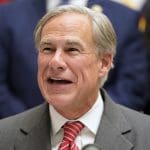Donald Trump is creating chaos in GOP gubernatorial primaries
The former president is using his influence to destabilize Republican governors’ races across the country.

For the past two decades, the sitting president’s party has lost governorships in the midterm elections. Former Presidents Barack Obama and Donald Trump each saw their respective parties lose six governor’s mansions during their first midterms in office.
But little about American politics is predictable in 2022. Despite a political environment that could be treacherous for President Joe Biden’s party, the most chaotic fights are happening in Republican primaries in key swing states like Pennsylvania, Michigan, Wisconsin, Georgia, Arizona, and Nevada, with contests that are messy, bruising, and so far inconclusive about where exactly Republicans’ allegiances lie in a post-Trump era.
What accounts for this discord, especially in a year when Republicans should be on the attack, not stuck in nasty primary battles? Across a series of conversations with a bipartisan group of political strategists and communications experts, one name, perhaps predictably, kept coming up: Donald Trump.
Many moderate Republicans, especially women, have left the party since Trump’s 2016 victory, magnifying the political power of right-wing Republicans within primary contests. As a result, experts say, the former president’s influence among Republican voters and endorsements have elevated candidates who echo his rhetorical style and political priorities. Republicans are living in a political world remade by Trump’s two presidential campaigns, according to longtime Democratic pollster Stan Greenberg.
“Trump dominates the party, but it’s a fractured party,” he told the American Independent Foundation.
These fissures within the Republican Party have given rise to a treacherous landscape for GOP primary candidates in swing states across the country. In Georgia, Republican Gov. Brian Kemp is facing the full force of Trump’s penchant for intraparty chaos. After Kemp refused to help overturn Georgia’s 2020 election results, Trump recruited former Sen. David Perdue to challenge the incumbent governor. As a result, what typically would have been a routine re-nomination process has morphed into a costly primary fight. In February, the Republican Governors Association spent $500,000 on a pro-Kemp ad. It was the first time the RGA has spent money defending an incumbent from a primary challenge.
While Kemp still leads in polling despite Trump endorsing his opponent, nearly every other Republican running for governor appears to have made the calculation that they cannot afford to alienate the former president and his die-hard supporters. As a result, Trump’s false claim that the 2020 elections were stolen from him — which enjoys wide support among Republicans — is unquestioned among candidates. Just one Republican running for governor in a swing state has publicly accepted Biden’s 2020 win: Nevada frontrunner and Clark County Sheriff Joe Lombardo.
Aside from Perdue, the only gubernatorial candidate Trump has endorsed in a swing state is Kari Lake, the former cable news anchor running a headline-grabbing campaign in Arizona. Lake, who was a Democrat from 2008 to 2012 and has no prior political experience, surged to the front of the field after Trump’s endorsement. But her polling numbers have stalled, and Karin Taylor Robson, a real estate developer and former member of the state board of regents, is now close behind her. Robson, who is partly self-financing her campaign, has raised millions more than Lake.
Michigan’s Republican primary, which could have voters choose among as many as 12 candidates, is also far from decided. Even though a narrow majority of likely voters disapprove of Democratic Gov. Gretchen Whitmer, the Republican who polls best against her, former Detroit Chief of Police James Craig, has failed to secure a clear lead in the primary. Last month, Craig lost his second campaign manager in four months, the latest in a series of campaign personnel shakeups.
Michigan state party leaders seem to think the race is still open. On March 23, State Senate Majority Leader Mike Shirkey endorsed Tudor Dixon, a right-wing media personality. But Dixon has lagged in polling and fundraising, falling behind candidates with no political experience and little backing from the party establishment, such as chiropractor Garrett Soldano.
Meanwhile, Whitmer’s campaign has raised a whopping $14.3 million, and a hypothetical matchup between Craig and Whitmer has the incumbent governor leading by 3 points, according to RealClearPolitics’ polling average.
The Pennsylvania GOP primary is so uncertain that, for the first time in 40 years, the state party has refrained from endorsing a candidate. State Senator Doug Mastriano, who attended the Jan. 6, 2021, “Stop the Steal” rally that preceded the U.S. Capitol insurrection, currently leads a field of nine Republican candidates with 15% of the vote.
In contrast, Pennsylvania Attorney General Josh Shapiro is almost certain to be the Democratic nominee for governor, and with no serious primary competitors to worry about, Shapiro’s campaign raised $4.53 million last quarter alone — more than 10 times what Mastriano has raised.
Just one Democrat in a swing state — Arizona Secretary of State Katie Hobbs — is running in a contested gubernatorial primary. Hobbs, who leads the field by almost 40 points and has outraised both of her opponents combined, has had to reckon with allegations that she discriminated against a Black staff member during her tenure as state Senate Democratic leader.
Hobbs fired the staffer, Talonya Adams, from her position as a policy adviser at the Arizona Senate in 2015, alleging insubordination and abandonment of her job. Last fall, a federal jury awarded Adams $2.75 million in damages, ruling that she was fired because she asked for a raise after learning that she was paid less than her white and male colleagues. In December, Adams announced she would pursue further legal action against Hobbs.
American voters and donors tend to favor candidates who are already in office, which is good news for incumbent Democratic governors like Whitmer, Wisconsin Gov. Tony Evers, and Nevada Gov. Steve Sisolak. Between 1980 and 2013, 80% of incumbents who ran won, according to the Center on the American Governor at Rutgers University. An incumbent Democratic governor hasn’t lost their reelection campaign since 2014.
Still, in many of these primary battles, Republicans have plenty of time to rally around a candidate, and it’s impossible to predict how voters’ opinions may shift between now and November. Republican strategist Fred Piccolo said he’s confident his party stands to win back some governorships, banking on Biden’s own faltering approval ratings and Americans’ anxieties about the economy. Even Biden’s 2020 campaign pollster, John Anzalone, called the 2022 midterms the “worst political environment that I’ve lived through in 30 years of being a political consultant.”
Piccolo said he isn’t worried that Republicans’ rush to appeal to the party base will spell doom in the general election. “How many times did Trump say something offensive,” he said, “something like the Access Hollywood tape, and how many times did people say he was done?”
Published with permission of The American Independent Foundation.
Recommended

Ohio Gov. DeWine said he didn’t know of millions in FirstEnergy support. Is it plausible?
Ohio Gov. Mike DeWine’s claim to not know about the millions an Akron utility spent supporting his 2018 campaign for governor simply isn’t credible, an Ohio political scientist said in a recent interview. A spokesperson for DeWine pushed back. FirstEnergy provided that support, then spent more than $60 million to pass and protect a $1.3 billion ratepayer-financed […]
By Marty Schladen, Ohio Capital Journal - April 29, 2024
Missouri governor hopeful Bill Eigel rejects affordable childcare proposal
Eigel has previously supported stripping funds from public schools and once opposed an expansion of early kindergarten.
By Jesse Valentine - April 15, 2024
Montana Gov. Greg Gianforte hosts event with religious extremist
J.P. De Gance is the founder of Communio, an organization that uses social media marketing tools to push a far-right agenda.
By Jesse Valentine - March 27, 2024







































































